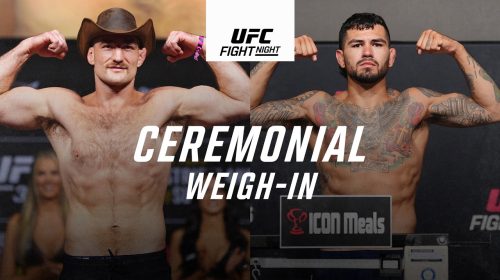
Perfect Professional Fighter Resume
Looking to become a professional fighter? It is important that you have the perfect resume if you want to make a good impression on potential promoters. In this blog post, we will discuss what you should include in your resume and provide some tips on how to make it stand out. We will also provide some examples of resumes that have helped fighters land their dream jobs!
Should Professional Fighters Have Resumes?
For the past few decades, mixed martial arts (MMA) has been one of the fastest-growing sports in the world. Its popularity is only matched by its diversity; fighters come from all different backgrounds and disciplines. While many fans love this about the sport, some have argued that professional fighters should have resumes. After all, when two fighters step into the ring, they are not only representing themselves but also their team, their coach, and their country.
A resume would help to ensure that each fighter is properly prepared for their bout. It would also help to create a level playing field, as some fighters come from more traditional backgrounds than others. However, others argue that MMA is unique in that it is open to anyone with the desire to fight. This openness is one of the things that makes the sport so exciting. In the end, it is up to each fighter to decide whether or not they want to create a resume.
What Should Professional Fighters Include In Their Resume?
Professional fighters have a lot to include in their resume. Fighters should list their stats, their weight class, how many years they’ve been fighting, their record, and any titles they hold. They should also list their gym affiliation and any notable coaches or trainers they’ve worked with. In addition, fighters should list any significant achievements or accomplishments, such as winning a tournament or being part of a successful title defense.
Finally, fighters should include a section on their fighting style, highlighting their strengths and weaknesses. By including all of this information, fighters can give potential employers a good idea of their skills and experience.
Why Should Professional Fighters Include Their Weaknesses In Their Resume?
Every fighter has weaknesses. Some fighters have weaknesses in their stand-up game, while others might have a weak submission game. However, these weaknesses can beused to the fighter’s advantage. By including their weaknesses in their resume, they can create an aura of mystery and make their opponents underestimate them.
Additionally, by identifying their weaknesses, they can work on improving them and making them into strengths. In sum, there are many reasons why professional fighters should include their weaknesses in their resume. By doing so, they can gain an edge over their opponents and improve their chances of winning.
How Should A Professional Fighter Resume Look Like?
The resume should highlight the fighter’s professional accomplishments in the ring, as well as any other related experience or skills. For example, a resume might list title defenses, KOs, and championship wins, as well as any experience in boxing training or instruction. It might also highlight any unique skills or attributes, such as hand speed, power, or footwork. In addition, a resume should include any relevant academic degrees
or certifications. For example, many professional fighters have a degree in sport science or kinesiology.
Finally, a resume should list any notable sponsorships or endorsements. These can provide valuable credibility for a fighter and show that they are able to generate outside interest and support, which is why many fighter choose to work with resume writing services. By including all of these elements, a professional fighter can create a strong resume that will help them to stand out from the competition.
Tips On How To Write A Resume As A Fighter

A resume is one of the most important tools that you have in your fight career. It’s essentially a snapshot of your skills and accomplishments, and it’s what promoters and matchmakers use to determine whether or not you’re a good fit for their shows. Here are a few tips on how to write a resume that will help you get booked:
Keep it professional. This is not the time to get creative with your formatting or use cutesy fonts. Stick to a clean, simple layout that is easy to read.
Include all of your contact information. Promoters need to be able to reach you, so make sure that your email address and phone number are prominently displayed.
List your fighting experience. Promoters want to see what kind of experience you have, so be sure to include both amateur and professional bouts. Be sure to list the name of the promotion, the date of the event, and your opponent’s name and record.
Highlight your accomplishments. If you’re a multiple-time champion or have won any prestigious tournaments, be sure to mention it!
Get expert feedback. Ask a friend, a coach, or a resume writer who has experience in the fight industry to take a look at your resume and offer any
suggestions.
Wrapping Up
By following these tips, you can be sure that your resume will help you get booked for the best fights possible. So get out there and start writing!
Do you have any questions about how to write a professional fighter resume? Let us know!
























